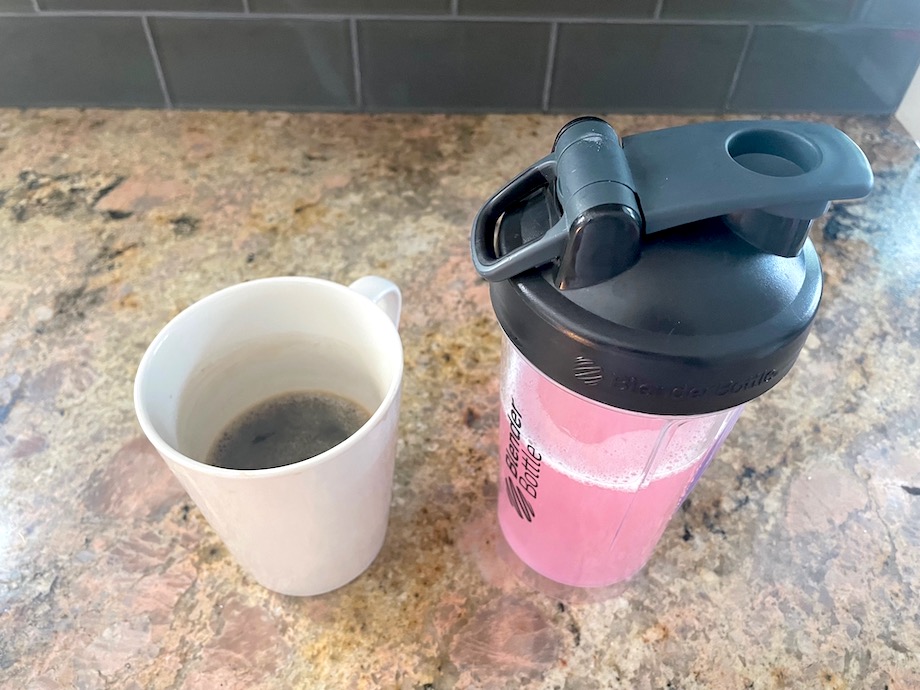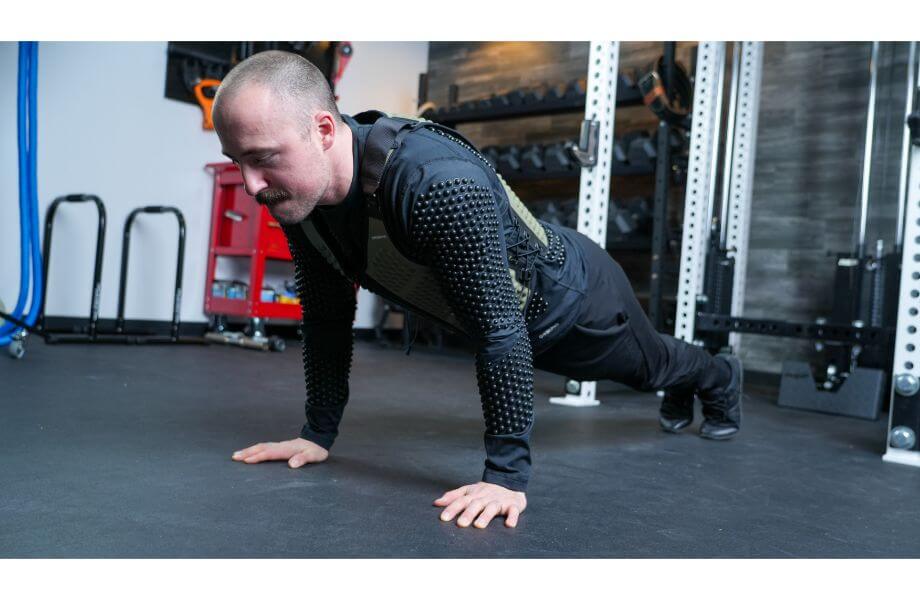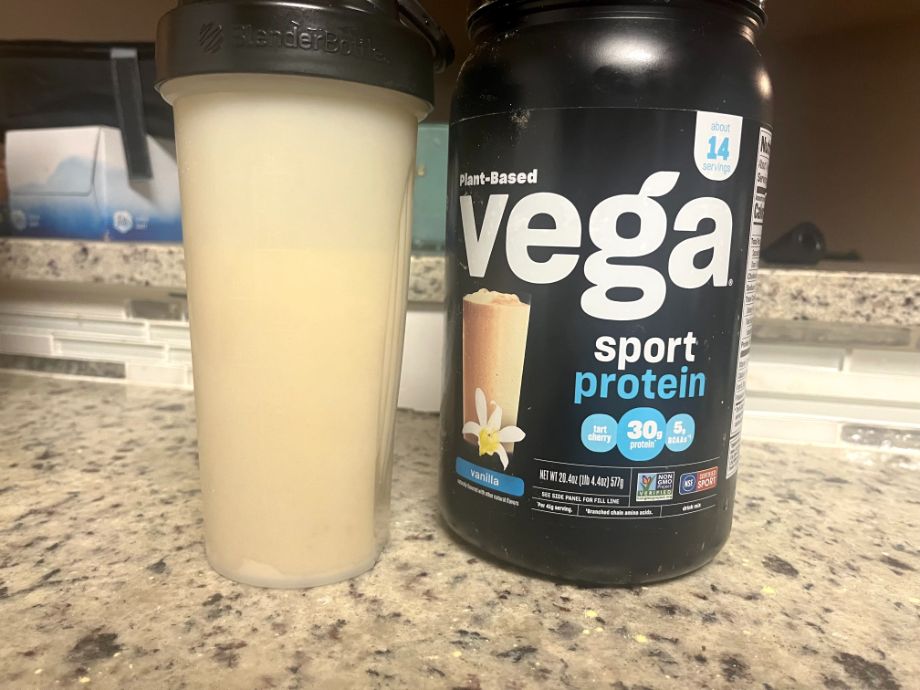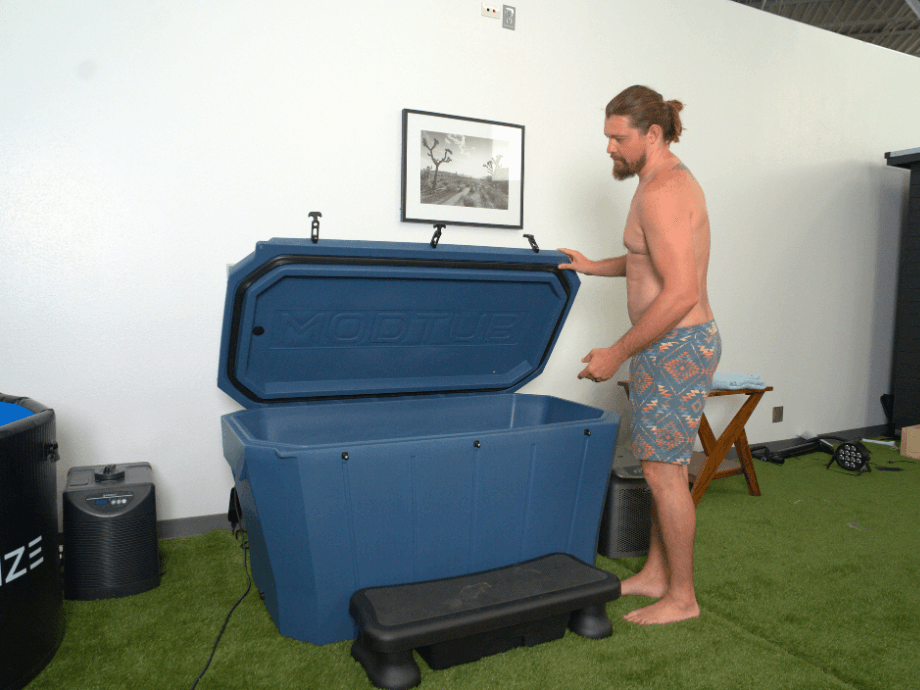Choosing between coffee and the best pre-workout to help you power through that last rep can be confusing. Tons of contradictory statements about the safety and benefits of coffee exist online, and deciphering the ingredient list on a pre-workout supplement can be enough to make your head spin.
If you’re trying to figure out whether drinking coffee vs pre-workout is the best choice for giving you extra energy in the gym, you’re in the right place. We’ve sorted through the evidence to provide you with the most helpful comparison of these two popular options.
Are coffee and pre-workout equally effective? Are there any risks to consuming them? Are all the best pre-workout ingredients even helpful? We’ll discuss everything you need to know to make the right decision for fueling your workouts.
Medical disclaimer: This article is intended for educational and informational purposes only. It is not intended as a substitute for medical advice. For health advice, contact a licensed healthcare provider.
Caffeine
Let’s start with the most important ingredient—caffeine. Caffeine is a natural compound found in foods and beverages like coffee, chocolate, and non-herbal teas that is loved worldwide for its ability to help us feel more awake, focused, and energized. It’s also frequently added to energy drinks, gels, mouth rinses, and pre-workout supplements to help power through our workouts.
Caffeine works by making a natural compound in the body called adenosine less effective. Adenosine works in the brain to make us feel sleepy and relaxed. Caffeine swoops in and blocks adenosine from attaching to its receptors in the brain, causing us to feel more alert and focused.
Caffeine is considered an “ergogenic aid”, a term that refers to a variety of substances used to improve performance. Caffeine is one of the most well-studied ergogenic aids, with the International Society of Sports Nutrition1 advising that 3 to 6 milligrams of caffeine per kilogram of body weight is effective for improving performance. Both coffee and pre-workout supplements contain caffeine and are popular choices for fueling workouts.
Coffee
If its unique flavor isn’t enough to turn you into a coffee drinker, its caffeine content just might. Keep in mind that the amount of caffeine in a cup of joe varies based on the method of preparation. The average caffeine content of popular varieties is listed here, sourced from the USDA FoodData Central database:
- Drip coffee (8 oz): 95 mg
- Espresso (1 shot): 64 mg
- Cold brew (8 oz, ready-to-drink [non-concentrate]): 100-216 mg
- Nitro cold brew (8 oz): 143-240 mg
The effects of caffeine can be felt as soon as 15 to 20 minutes after you begin drinking a cup of coffee. It can take 45 minutes to an hour for these effects to be at their peak.
Pre-Workout
As with each variety and brand of coffee, the caffeine content in pre-workout will vary based on the product you choose. They typically range from 150 to 300 mg of caffeine per serving, the amount of caffeine in about 2 to 3 cups of coffee.
RELATED: Dry-Scooping Pre-Workout
Other Important Ingredients
Of course, caffeine isn’t the only thing provided by pre-workouts, and even sometimes coffee. It’s important to consider other ingredients and how these may impact you during exercise.
Coffee
If you like to keep things simple and enjoy drinking black coffee, there isn’t much to consider besides its caffeine content. Otherwise, coffee drinks vary in their ingredients and may contain:
- Dairy or non-dairy milk
- Sweeteners (table sugar, flavored syrups, agave, honey)
- Artificial sweeteners
- Sugar alcohols
- Natural non-caloric sweeteners (monk fruit, stevia)
- Chocolate
- Fats such as butter, MCT oil, or olive oil
Sugar may provide an extra benefit for exercise performance thanks to the quick-digesting, energy-boosting carbohydrates it provides. It may be best to avoid drinking coffee with added fat right before a workout, however, since this could lead to digestive upset. Fat also slows down how quickly caffeine is absorbed into the bloodstream, so it could prevent you from reaping the full benefits of caffeine if consumed too close to a workout.
Pre-Workout
Pre-workout drinks tend to have many ingredients that are claimed to improve athletic performance during exercise. These multi-ingredient pre-workout supplements aim to provide greater benefits for performance than you would get just by taking one or two individual supplements. We’ll discuss some of the most popular ones below.
BCAAs: Branched chain amino acids (BCAAs) include three essential amino acids that are particularly powerful for muscle growth. The idea behind adding leucine, isoleucine, and valine is to provide an easily digestible source of energy during exercise that will help preserve lean muscle from being used as fuel and to help support recovery post-workout.
RELATED: Best BCAA Supplements
Beta-alanine: Beta-alanine is a non-essential amino acid often included for its ability to reduce muscular fatigue through its conversion to carnosine in muscle tissue. It often causes a tingling sensation that you might get when taking a pre-workout.
Creatine monohydrate: One of the most popular workout supplements, creatine monohydrate is most helpful for improving performance during high-intensity exercise like heavy resistance training and powerful sprints and helping to build muscle.
L-carnitine: Carnitine claims to help with fat-burning, reducing fatigue, and helping you recover faster after workouts.
L-citrulline: Citrulline is added to pre-workouts to help boost the body’s production of nitric oxide, a compound known to dilate blood vessels to increase blood flow and delivery of oxygen to tissues (including muscle).
B-vitamins: B vitamins like niacin and vitamin B12 are included in many pre-workouts in order to help the body metabolize food for energy and improve energy levels during exercise.
Benefits of Coffee vs Pre-Workout
Some people prefer coffee since it’s considered more “natural” and less processed than pre-workouts, while others swear by their pre-workout for pump and increased reps. The truth is, both can have benefits for exercise.
Coffee
Consuming 3 to 6 milligrams of caffeine per kilogram of body weight has been proven to have moderate performance-enhancing benefits for cardiovascular and muscular endurance, muscular strength, and many sport-specific movements. Coffee can easily provide this much caffeine intake.
According to a May 2022 meta-analysis published in Nutrition2, as little as 0.9 to 2 milligrams per kilogram may also do the trick. For a person weighing 150 pounds, recommendations using a broad range of 0.9 to 6 milligrams would be between one to four cups of coffee consumption.
For a person weighing more than 150 pounds, it might be best to stay in the low to moderate part of this range to avoid exceeding the FDA’s3 recommended daily limit of 400 milligrams of caffeine consumption.
The benefits of coffee aren’t limited just to working out—it also has impressive benefits for our overall health and wellness also. In fact, drinking 2 to 3 cups of coffee a day is associated with a lower risk for heart disease, stroke, type 2 diabetes, and metabolic syndrome, as reported in an October 2022 review in Trends in Cardiovascular Medicine4.
Black coffee has only one ingredient, meaning you can know exactly what you’re putting into your body. Some pre-workouts, on the other hand, contain proprietary formulas and may not clearly label their ingredients. This may be an issue if you prefer to avoid artificial sweeteners, dyes, and unnecessary fillers.
RELATED: Coffee Pre-Workout
Lastly, a major benefit of coffee is that it’s much cheaper per serving than pre-workout supplements. The average price of brewing a cup of coffee at home is about $0.25, while some pre-workouts can cost up to $2.25 a serving — about nine times more expensive.
Pre-Workout
While the benefits of pre-workout will vary based on the ingredients used, an August 2018 paper in the Journal of the International Society of Sports Nutrition5 suggests that they are generally effective for improving muscular endurance and mood. When combined with resistance training, they can also help build lean body mass and improve overall body composition. On the other hand, the effectiveness of pre-workout for measures like force production and long-term muscular and aerobic endurance aren’t clear.
To get the benefits of each pre-workout ingredient shown in research, your pre-workout will need to contain the recommended amounts of each. For example, 4 to 6 grams of beta-alanine is needed per day in order to train for a longer period of time and increase your total training volume.5 Not all pre-workouts contain proven amounts of each ingredient.
RELATED: How Long Does Pre-Workout Last?
Keep in mind that not every pre-workout ingredient has much scientific backing behind the claims. For example, there isn’t much evidence to show that BCAAs significantly improve performance or help build muscle mass. Similarly, evidence is mixed on whether l-carnitine actually helps burn more fat.5 Besides caffeine, creatine is the most-studied ingredient often found in pre-workout, and a daily dose of 3 to 5 milligrams is needed to reap all of its benefits.
Side Effects: Coffee vs Pre-Workout
As with any stimulant or supplement, it would be irresponsible to hype up the benefits of coffee and pre-workout supplements without discussing potential reasons for concern.
Coffee
While coffee is largely considered a safe beverage for most people, it’s definitely possible to have too much of a good thing. Negative effects of caffeine from drinking too much coffee may include:
- Shakiness or jitters
- Heightened anxiety if prone to this condition
- Heart palpitations
- Increased blood pressure
- Trouble falling asleep or getting good quality sleep
- Loss of focus
These symptoms may be worse in people who are particularly sensitive to caffeine.
Pre-Workout
Beyond the same effects of too much caffeine, a commonly reported side effect of pre-workouts is paresthesia—an itchy, tingly, or prickly feeling in the skin due to consuming high levels of beta-alanine. Paresthesia is harmless but uncomfortable, so you might consider choosing a pre-workout with less beta-alanine or consuming smaller doses throughout the day rather than all at once.
Itching isn’t the only potential side effect of pre-workouts. According to an April 2019 study published in Nutrients6, 54% of people taking pre-workout also report side effects like:
- Nausea
- Rapid heart rate
- Heart palpitations
- Skin rashes
- Light-headedness or dizziness
Interestingly, women may be more likely to experience these symptoms than men despite being less likely to over-consume pre-workout. Symptoms may also be worse when taking more than the recommended serving size. Sticking to one serving a day should be a safe strategy for avoiding side effects.
If you choose to take pre-workout, make note of other sources of caffeine and niacin that you regularly eat or drink throughout the day. Consuming too much of these ingredients can lead to negative side effects, and they can be easy to over-consume.
As always, we recommend choosing a pre-workout that’s third-party tested for safety, purity, and accuracy of ingredients since dietary supplements aren’t regulated by the FDA.
Final Thoughts on Coffee vs Pre-Workout
When you’re looking for a boost of energy to power you through a workout, coffee and pre-workout can both help you meet your fitness goals thanks to their caffeine content.
Pre-workouts often contain blends of additional ingredients that may boost performance with varying effectiveness, but some brands may not clearly label every ingredient. On the other hand, coffee contains healthful antioxidants in addition to its caffeine content and can be more budget-friendly.
Whichever you choose, it’s best to stick to the recommended guidelines for consumption. This will help you reap the benefits of your coffee or pre-workout while avoiding unpleasant side effects.
Coffee vs Pre-Workout: FAQs
Is it better to drink coffee or pre-workout?
The answer to this depends on your personal preferences and needs. Both can provide adequate amounts of caffeine needed to help you power through workouts, with pre-workout providing slightly more.
Pre-workout also contains other ingredients like beta-alanine, BCAAs, and B vitamins, which can provide additional benefits for exercise, although some ingredients have less evidence supporting them than others. Since black coffee has only one ingredient, you’ll have a better idea of what exactly you’re consuming.
Can coffee replace pre-workout?
If you’re just looking for a source of caffeine, coffee can be a great replacement for pre-workout. However, it won’t contain other ingredients like beta-alanine, creatine, BCAAs, and B vitamins that are often added to pre-workout supplements.
How many cups of coffee is equivalent to pre-workout?
Drip coffee contains between about 95 milligrams of caffeine per cup, with pre-workouts providing between 150 to 300 milligrams per serving. Based on the brand, one serving of pre-workout can be equivalent to drinking about two to three cups of coffee.
What’s the healthiest pre-workout?
The healthiest pre-workouts don’t contain unlisted ingredients or a large amount of stimulants. Our picks for the best stim-free pre-workouts include:
Best Stim-Free Pre-Workout Overall: Transparent Labs Stim-Free Pre-Workout
Best All-Natural Stim-Free Pre-Workout: Legion Athletics Pulse (caffeine-free version)
Best Stim-Free Pre-Workout With Creatine: Kaged Pre-Kaged Stim-Free
Best Stim-Free Pre-Workout for Pump: Huge Supplements Pump Serum Non-Stim
Best Budget Stim-Free Pre-Workout: RAW Nutrition Pump
Best-Tasting Stim-Free Pre-Workout: Genius Pre
Best Stim-Free Pre-Workout for Beginners: BPN Endopump
Best Stim-Free Pre-Workout for Endurance: 1st Phorm Endura-Formance
References
- Guest NS, VanDusseldorp TA, Nelson MT, Grgic J, Schoenfeld BJ, Jenkins NDM, Arent SM, Antonio J, Stout JR, Trexler ET, Smith-Ryan AE, Goldstein ER, Kalman DS, Campbell BI. International society of sports nutrition position stand: caffeine and exercise performance. J Int Soc Sports Nutr. 2021 Jan 2;18(1):1. doi: 10.1186/s12970-020-00383-4. PMID: 33388079; PMCID: PMC7777221.
- Grgic J. Exploring the minimum ergogenic dose of caffeine on resistance exercise performance: A meta-analytic approach. Nutrition. 2022 May;97:111604. doi: 10.1016/j.nut.2022.111604. Epub 2022 Jan 22. PMID: 35203046.
- U.S. Food and Drug Administration. Spilling the Beans: How Much Caffeine is Too Much? FDA website. https://www.fda.gov/consumers/consumer-updates/spilling-beans-how-much-caffeine-too-much#:~:text=For%20healthy%20adults%2C%20the%20FDA,it%20(break%20it%20down). Accessed 5/2/23.
- Chieng D, Kistler PM. Coffee and tea on cardiovascular disease (CVD) prevention. Trends Cardiovasc Med. 2022 Oct;32(7):399-405. doi: 10.1016/j.tcm.2021.08.004. Epub 2021 Aug 9. PMID: 34384881.
- Harty PS, Zabriskie HA, Erickson JL, Molling PE, Kerksick CM, Jagim AR. Multi-ingredient pre-workout supplements, safety implications, and performance outcomes: a brief review. J Int Soc Sports Nutr. 2018 Aug 8;15(1):41. doi: 10.1186/s12970-018-0247-6. PMID: 30089501; PMCID: PMC6083567.
- Jagim AR, Camic CL, Harty PS. Common Habits, Adverse Events, and Opinions Regarding Pre-Workout Supplement Use Among Regular Consumers. Nutrients. 2019 Apr 16;11(4):855. doi: 10.3390/nu11040855. PMID: 31014016; PMCID: PMC6520716.







